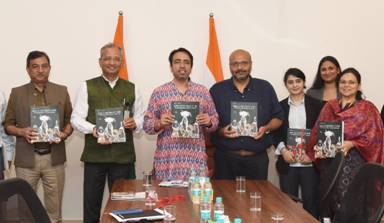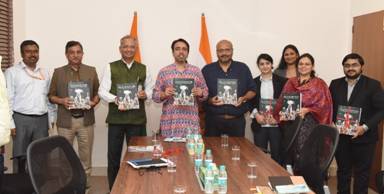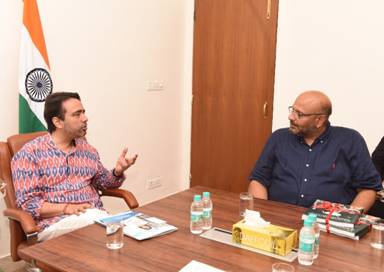New Delhi, June 27, 2025, Union Minister of State (I/C), Ministry of Skill Development and Entrepreneurship and Minister of State, Ministry of Education, Shri Jayant Chaudhary unveiled a report titled “Skills for the Future: Transforming India’s Workforce Landscape”, developed by the Institute for Competitiveness today in New Delhi.
Union Minister of State (Independent Charge) for Skill Development and Entrepreneurship and Minister of State for Education, Shri Jayant Chaudhary, unveiled a landmark report titled “Skills for the Future: Transforming India’s Workforce Landscape” in New Delhi today. The report, developed independently by the Institute for Competitiveness (IFC), provides a comprehensive analysis of India’s skilling ecosystem and its alignment with current and future labour market needs.
Speaking at the event, Shri Chaudhary highlighted the need to rethink skilling as more than just a supply-side initiative. “Skilling must be seen as a demand-driven, market-aligned, and outcome-oriented ecosystem that meets the evolving needs of both industry and the workforce,” he stated. He also stressed the importance of integrating education, vocational training, and industry needs, including recognition of informal and experiential learning.
The report is a data-driven examination of India’s skill landscape, based on public datasets, especially the Periodic Labour Force Survey (PLFS) 2023–24. It notes that 88% of India’s workforce remains in low-competency roles, with only 10–12% occupying high-competency jobs. This stark divide underlines the urgent need for targeted policy interventions and future-oriented training programs.
Using PLFS data, the report identifies five major sectors accounting for over 66% of vocational training:
-
IT and ITeS
-
Textile and Apparel
-
Electronics
-
Healthcare and Life Sciences
-
Beauty and Wellness
Additionally, five high-potential regions were pinpointed using Competitiveness Framework Analysis, drawing from data across PMKVY 4.0, Sector Skill Councils (SSCs), and the National Apprenticeship Promotion Scheme (NAPS).
Shri Chaudhary also recommended the creation of a robust Employability Index to track the impact of skilling on job outcomes. He emphasized the need for evidence-based planning, urging industries to actively recruit from certified talent pools and contribute to curriculum development, while ensuring fair wages for skilled professionals.
Shri Atul Kumar Tiwari, Secretary, Ministry of Skill Development and Entrepreneurship, acknowledged the significance of academic inquiry in skilling and called for the development of a deeper literature base with strong data foundations. He also encouraged a structural re-evaluation of the education-skilling-work continuum.
Chairman of the Institute for Competitiveness, Dr. Amit Kapoor, expressed gratitude to the Ministry and reaffirmed IFC’s commitment to supporting India’s skilling agenda through research and actionable insights.
The report concludes with actionable recommendations for creating a future-ready workforce, including targeted policy measures, standardized data systems, and industry collaboration to ensure training is market-relevant and sustainable.






